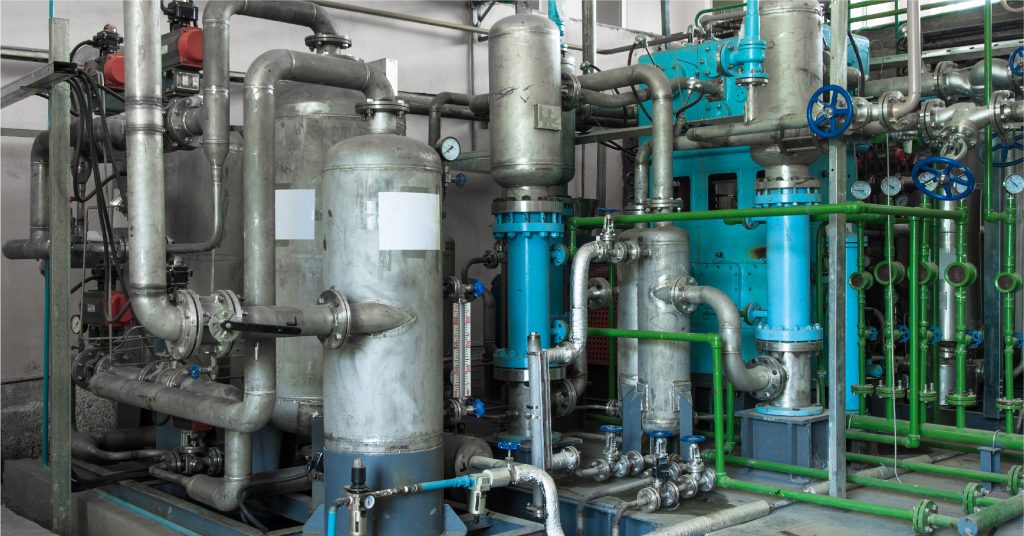Water is one of the most essential resources, and its treatment plays a crucial role in ensuring public health and environmental sustainability. In Malaysia, effective water treatment processes are a necessity due to increasing industrialization, urbanization, and rising water demand. Among these processes, filtration stands out as a vital step in purifying water for residential, industrial, and agricultural applications. This blog explores what filtration in water treatment is, how it is applied, and the advanced techniques and technologies commonly used in Malaysia.
What Is Filtration in Water Treatment?
Filtration in water treatment is a physical or chemical process that removes impurities, suspended particles, and contaminants from water. The filtration process in water treatment involves passing water through a medium that traps unwanted substances while allowing clean water to flow through. This step is critical in improving water quality and making it safe for consumption or industrial use.
Filtration is a versatile process and is employed in various stages of water treatment, such as pre-treatment, primary purification, and polishing. It enhances the efficiency of other water treatment processes, such as disinfection and chemical treatments, by reducing the load of contaminants.
How Is Filtration Applied in Water Treatment?
Filtration is applied in water treatment at multiple stages, depending on the type and quality of water being treated. Here’s an overview of how filtration is used:
- Pre-Treatment: Filtration is often the first step in water treatment to remove large particles, debris, and sediments. This stage prevents clogging and damage to downstream equipment.
- Primary Treatment: Techniques like sand filtration in water treatment are commonly used to remove suspended solids, turbidity, and certain microorganisms.
- Polishing: After primary treatment, advanced filtration methods are applied to remove finer particles, organic matter, and trace contaminants, ensuring high-quality water output.
- Specialized Applications: In industrial settings, filtration is used to remove specific contaminants, such as heavy metals or oil residues, from process water.
Common Techniques for Filtration in Water Treatment
Malaysia employs various filtration techniques depending on the source of water and its intended use. Here are the most widely used methods:
Sand Filtration in Water Treatment
Sand filtration is one of the oldest and most effective methods used in water treatment. This process involves passing water through layers of sand, gravel, and other granular materials that trap suspended particles and impurities. Sand filtration is ideal for removing turbidity, sediments, and certain types of bacteria.
In Malaysia, sand filtration is commonly used in municipal water treatment plants and industries that require large volumes of clean water. It is also a popular choice for irrigation systems in agriculture.
Membrane Filtration
Membrane filtration techniques, such as ultrafiltration, nanofiltration, and reverse osmosis, have gained popularity in Malaysia due to their ability to remove fine particles, salts, and microorganisms. These methods use semi-permeable membranes with microscopic pores to separate contaminants from water.
Membrane filtration is particularly useful for treating brackish water, seawater, and industrial wastewater. It provides high-quality water suitable for drinking, industrial processes, and reuse.
Activated Carbon Filtration
Activated carbon filtration is a chemical process that uses porous carbon material to remove organic compounds, chlorine, and odors from water. This technique is highly effective in polishing treated water and is widely used in residential and industrial applications in Malaysia.
Multimedia Filtration
Multimedia filtration involves the use of multiple layers of filtration media, such as sand, anthracite, and garnet, to remove a wide range of contaminants. This method provides enhanced filtration efficiency and longer operational life compared to traditional sand filters. Multimedia filtration is often employed in pre-treatment processes for industrial and municipal water treatment systems.
Pressure Filtration
Pressure filtration systems are compact and efficient, making them suitable for applications with limited space. These systems use pressurized vessels filled with filtration media to remove contaminants rapidly. They are commonly used in industries such as oil and gas, power plants, and food and beverage processing in Malaysia.
Ion Exchange: Pioneering Advanced Filtration Solutions for Water Treatment
Ion Exchange Filters are categorized into pressure filters and gravity filters based on the method of water flow, either under pressure or by gravity, through the filter media. These filters utilize various materials, such as fine or coarse sand, anthracite, garnet, and granular activated carbon, as the filtering media.
-
INDION Continuous Sand Filters features a unique continuous operation and automatic backwashing system. This makes them an excellent choice for water and wastewater treatment across a wide range of industries. The filters offer a compact and modular design, allowing for easy installation and maintenance, which enhances their suitability for various industrial applications. Their versatile applications include potable water treatment, industrial process water treatment, and tertiary wastewater treatment, offering flexibility across different sectors. These filters are commonly used in municipal water treatment to enhance water quality, in industrial settings to improve process water quality, and in wastewater treatment to facilitate tertiary treatment and nutrient removal.
-
INDION Multigrade Filters Pressure offers an efficient solution with its high flow rates and consistent water quality. These filters are engineered to deliver superior filtration performance with a low-pressure drop, minimizing energy consumption and operational costs. Built with durable materials, they are designed to withstand challenging operating conditions, ensuring a long service life. They are versatile and find applications in several sectors, including industrial water treatment, municipal water purification, and desalination pre-treatment, making them a reliable choice for maintaining water quality standards in diverse environments.
-
INDION New Generation Multigrade Filters (NGMF) series are designed to efficiently remove suspended solids and turbidity from feed water that has been coagulated and clarified. These filters can handle a maximum flow of 35 m³/h, making them suitable for various industrial applications. Aesthetically designed, lightweight, and easy to install, the NGMF series requires no special foundation, enhancing their versatility and appeal. Constructed from durable plastic materials, the pressure vessel is made of fiber-reinforced plastic (FRP), while the pipework is constructed from polyvinyl chloride (PVC), ensuring robust performance and longevity. The filters are equipped with a single multi-port valve operated by a hand lever for user-friendly operation. To maintain optimal performance, the filters feature a backwashing mechanism that reverses the flow whenever the pressure drop across the unit exceeds a specified limit, ensuring the system remains efficient and reliable over time.
-
INDION Activated Carbon Filters are designed to effectively remove free residual chlorine (FRC) from feed water using granular activated carbon as the filter media. These filters are capable of treating feed water at flow rates of up to 170 m³/h. For specialized applications requiring the removal of odors, organic matter, and traces of oil, peat-based activated carbon with larger pores can be provided upon request. Key features of these filters include their compact design for easy installation and maintenance, tolerance to variations in chlorine levels, and built-in pressure gauges for monitoring. The filters are ideal for use in demineralizing and reverse osmosis units and for the removal of contaminants, making them versatile solutions for various industrial applications.
Conclusion
Filtration is a fundamental step in ensuring clean and safe water in Malaysia. By understanding what filtration in water treatment is and how it is applied, industries and municipalities can implement effective solutions to meet their water quality needs. Techniques like sand filtration, membrane filtration, and multimedia filtration are widely used to remove impurities, enhance water quality, and support sustainable water management.
As the demand for clean water continues to grow, Malaysia’s adoption of advanced filtration technologies is paving the way for a sustainable future.


